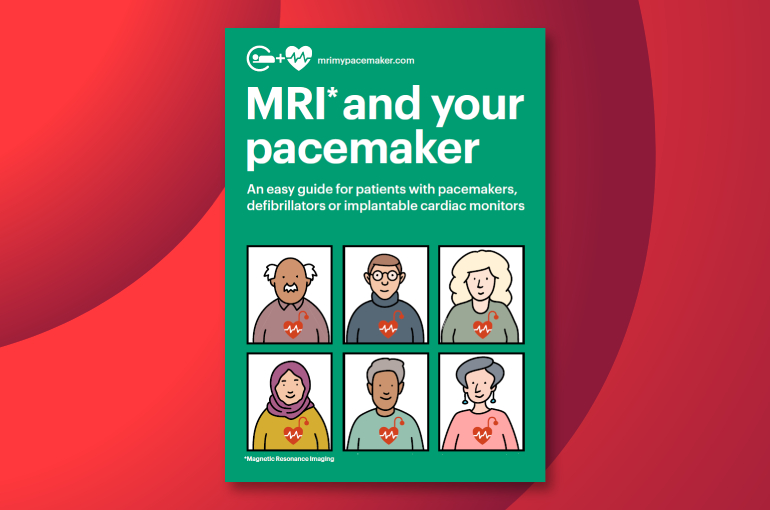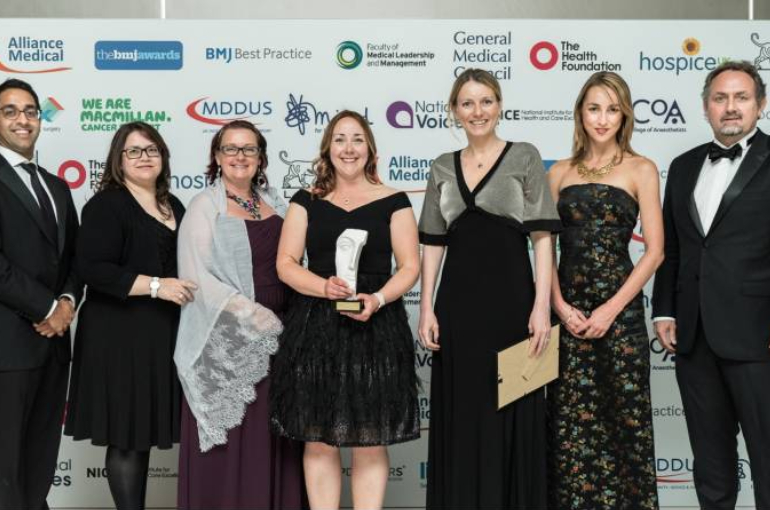Overview of the project
In 2020, the BHF awarded a grant of £130,000 through its Hope for Hearts fund to Dr Anish Bhuva and team at Bart's Health NHS Trust and University College London, to improve referrer awareness of MRI MyPacemaker, provide patient support, and develop and demonstrate feasibility of a cloud-based referrals platform for MRI MyPacemaker.
Magnetic resonance imaging (MRI) is used to diagnose a wide range of illnesses. Like everyone, many people with cardiac devices (pacemakers, defibrillators or implantable cardiac monitors) may benefit from an MRI scan at some point. Technology has changed in the last decade so MRI is technically possible when it is needed, yet patients with these devices still face difficulty accessing MRI scans. This leads to delays in the diagnosis and treatment of many conditions that rely on MRI. The "MRI my Pacemaker" campaign was set up to ensure that patients with cardiac devices have the same access to MRI as everyone else.
The project took two approaches:
Improve referrer awareness and provide patient support.
Because referrers are far less likely to refer a patient with a cardiac device for MRI than other patients, MRI MyPacemaker developed an educational video for clinicians to raise awareness. The campaign is also regularly contacted by patients looking for MRI services (both in the UK and abroad) and so we developed a UK referrals network. As patients are their own best advocate, resources were developed to provide support to patients at the time of an implant or if an MRI is being considered.
Develop and demonstrate feasibility of a cloud-based referrals platform to make it easy for referrers and make it simpler for services to provide MRI safely.
Referrals for patients within implanted devices require a complex process that needs multiple clinicians - and so patients do not get referred and miss out on diagnoses. Largely because of logistical barriers, the vast majority of UK MRI services do not provide scans for these patients with devices or do so at low volume. New services may require support to provide strict MRI protocols safely, and larger services are difficult to sustain due to the demands on staff time and expertise. MRI MyPacemaker created an online platform to simplify the otherwise complex process so that any MRI or Cardiology department can offer the scans.
Collaborative problem solving
Bringing together seven professional societies and three patient charities to develop guidelines, supportive tools and educational resources for this complex topic.
Guidelines for the 21st century
Guidelines were enhanced with practical, digital tools. Educational videos and patient leaflets were designed with input from all professional and patient groups so that they aligned with professional guidelines and patient needs.
New service design/development
Allied health professionals were supported by the referrals management platform so are now autonomous at running most aspects of the service (used as an NHS England Case Study). Other hospitals were able to set up services or increase provision of MRI to patients with MR Unlabelled devices.
Funding from the BHF Hope for Hearts Fund enabled the following to be achieved:
Immediate clinical care
MRI scans were provided to an estimated six hundred patients and support, and advice (provision of resources or guidance towards an MRI centre) to another estimated seven hundred patients.
Sustainability
Tackling the health inequality has required work at multiple levels. Change was embedded into the system: training a large number of clinicians, supporting new services, helping active services work efficiently, policy change and referrer engagement.
Bringing together patients, heart and imaging teams
Such complex medical care needs to break down silos of practice. This grant brought together teams who do not normally work together to address this problem.

Read more about the problem the team set out tackle, how they approached it, and what the funding enabled them to achieve.
Cardiac Imaging team at Barts winning the BMJ Diagnostic Team of the Year in 2018 for their work on MRI My Pacemaker

To read more about the project and what's next for the initiative, download the end of project report.


